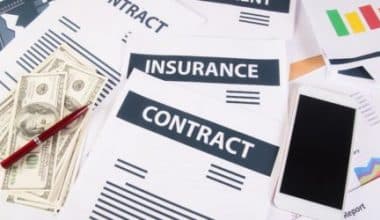Product liability insurance is a type of insurance that protects businesses from financial losses resulting from lawsuits alleging that their products cause injury or property damage. This type of insurance is essential for businesses that manufacture, sell, or distribute products, as it can help to cover the costs of legal defense, settlements, and judgments.
In this blog post, we will discuss everything you need to know about product liability insurance, including:
- Who needs product liability insurance?
- What does product liability insurance cover?
- How much does product liability insurance cost?
- How to choose the right product liability insurance policy
We will also provide some tips for managing product liability risk.
What is Liability?
When it comes to small businesses, liability refers to your organization being legally accountable for damages to a third party. You are exposed to a number of liability risks, whether you are a startup trying to get off the ground or an established entrepreneur with years of experience. Your business may not have done anything wrong in some cases, but you may nevertheless find yourself embroiled in a lawsuit. Having adequate insurance coverage for your business and its products can help you limit the losses caused by liability claims.
What is Product Liability?
Product liability occurs when a customer purchases a product and a flaw in the product causes bodily harm or property damage to a third party. If the source of the problem can be traced back to the small business, the owner may be held liable for the losses.
What is Product Liability Insurance?
Product liability insurance protects your business from claims that a product you manufactured or sold caused bodily harm or property damage to someone else’s goods.1 This coverage may be available as a separate policy from an insurance company, but we include it as part of your general liability insurance.
Without product liability coverage, your business may be forced to pay for expensive general liability claims relating to product defects out of pocket.
Why is Product Liability Insurance Important for Small Businesses?
If your business sells products to clients, a flaw could result in accidents or property damage. Consider the scenario where a customer purchases a power tool from your business. The consumer sues your business because a flaw in the tool causes them harm. The product liability coverage in your general liability insurance policy helps to cover:
- The customer’s medical fees for treating their injury
- Legal bills and costs associated with defending your business
- Settlements or judgments obtained against your business
You would have to pay these charges out of pocket if you didn’t have this coverage. Not every business has the financial wherewithal to defend against product liability litigation.
Who Should Get Product Liability Insurance?
Product liability insurance might be beneficial if you sell products to customers or clients or if you have a supply chain. Many industries, whether small businesses or huge corporations, can benefit from this coverage, including:
- Manufacturers
- Retailers
- Businesses engaged in wholesale distribution
An issue at any level of production might result in flaws, putting your business at risk of a product liability claim. That is why it is critical to secure your business with the proper insurance.
What is the Cost of Product Liability Insurance?
According to AdvisorSmith, product liability insurance typically costs around $99 per month or $1,192 per year. Insureon estimates that product liability insurance costs slightly less, often around $42 per month or $504 per year.
Rates may be higher for products deemed “riskier” or lower for products deemed “less risky.” A little less than one-third of Insureon clients spend less than $30 per month, while 41% pay $30 to $60 per month. Food, construction, and skin care items, for example, may be regarded as riskier, but photo, video, and professional services are on the lower end.
Your coverage plan and limit also have an impact on the cost. For example, most Insureon customers choose a $1 million per occurrence limit and a $2 million aggregate limit. This means that the insurance will pay out up to $1 million for a single claim and up to $2 million for all claims made throughout the policy period.
How Does Product Liability Insurance Work?
If you manufacture or sell products, your business may be held accountable for the cost of product liability claims if the product causes harm to a consumer—even if the user misuses the product. It protects you from legal and financial consequences. It offers third-party coverage, which means that any losses are paid to those who have been harmed or injured rather than to your business. (In this situation, the person who was harmed is the third party, and your business is the first.)
What are Some Instances of Product Liability Insurance?
Customers frequently report the following problems, which result in product insurance claims:
- Products that endanger the customer’s health
- Products that endanger property
- Sickness brought on by food or beverages
There are many potential causes of a product issue, but the three most frequent ones are:
- Design flaw: This problem exists in a product before it is manufactured. It implies that the product’s design is hazardous or incorrect.
- Manufacturing flaw: This problem indicates that something went wrong during the product’s production. Perhaps it was put together incorrectly or was missing a crucial component.
- Marketing flaw: This type of problem is unrelated to the product itself but rather to how it was sold to the customer. Common marketing flaws include poor labeling, erroneous safety warnings (or a lack thereof), and insufficient instructions.
What Does Product Liability Insurance Cover?
Only some types of damages are covered. These are some examples:
- Design flaws. Something is incorrect with the product’s design.
- Defects in the manufacturing process. Something went wrong during the production process.
- Marketing. An error in marketing materials, such as incorrect labeling.
- Inadequate forewarning. The product lacks adequate warnings about the potential risks.
- Strict Liability. Even if you are not at fault or it was not your purpose, the product causes harm to the customer.
What Does Product Liability Insurance Not Cover?
Product liability coverage excludes:
#1. Technological product.
Product liability only applies to physical harm, not to digital harm. Any damage caused by technological products necessitates the purchase of errors and omissions insurance (which covers losses incurred by your client as a result of your errors) or a professional liability insurance policy.
#2. Employee accidents.
Employee injuries and lost wages are covered by workers’ compensation insurance.
#3. Injuries to customers.
General liability insurance covers customer injuries at your place of business, such as slip and fall injuries.
#4. Recalls of products
If a customer injury results in a product recall, you’ll require specific product recall insurance.
#5. Accidents involving commercial vehicles.
Accidents involving commercial vehicles are covered by commercial auto insurance.
#6. Damage to your property.
While professional liability insurance covers harm to other people’s property caused by your product, commercial property insurance protects your property from damage.
Who Is Covered by Product Liability Insurance?
Product liability insurance is only required for businesses that manufacture, distribute, or repair physical objects. However, keep in mind that the term “product” can be interpreted in a variety of ways. If your company sells food and someone gets sick after eating it, you’ll need product liability insurance.
Consider purchasing product liability insurance if your company operates in any of the following industries:
- Manufacturing. If your organization produces something that causes bodily harm, you will be held accountable.
- Distribution. A distributor may be held accountable for damages resulting from defective products distributed by them.
- Retail. A retail store is responsible for the things it sells, even if it does not manufacture them.
- Food. Food poisoning can result in serious sickness or even death.
- Construction. General contractors, electricians, plumbers, and anyone who constructs physical structures may be held accountable for job site damage and harm.
- Cosmetology and beauty. Beauty products have the potential to induce allergic reactions as well as physical harm.
- Repairs. If you are in the business of fixing things, whether they are washing machines or automobiles, and someone gets injured as a result of your labor, you may be held accountable.
Where Can I Get Product Liability Insurance?
As with other types of insurance, seeking quotes from a few different insurance companies for comparison is the best method to obtain product liability insurance for your business. You can get references from your business contacts or start with a Google search and narrow down your needs from there.
Product Liability Insurance: How to Get Covered
- Check to see if you already own it. Depending on the nature of your business, your general liability insurance (which offers wide coverage against injury and property claims) may already provide adequate product liability coverage. Many of these laws do. Find out what your general liability insurance covers and whether you need to purchase extra policies.
- Select the appropriate coverage limit. This includes both the quantity of coverage you’ll receive and where you’ll be protected.
- Combine product liability coverage with your business owner’s policy. A business owner’s policy (BOP)—a bundled insurance package that covers many types of business insurance, such as general liability insurance, commercial property insurance, and workers’ compensation—may include product liability insurance. The specific coverage of a BOP varies based on your insurance carrier and industry. If your business is in manufacturing, distribution, retail, food, construction, cosmetics, or repairs, your BOP most certainly includes product liability insurance (though it’s always a good idea to double-check).
- Negotiate. You are not required to accept the quotes you have been offered. You can bargain for lower prices or more comprehensive coverage. Remember, before you sign the contract, everything is negotiable.
Is Product Liability Insurance Legally Required?
Product liability insurance is not required by law, but it may be required by manufacturers, suppliers, distributors, or retailers with whom you work. Furthermore, you may be sued if you are proven liable for injury, damage, or death caused by one of your products.
Who Is Responsible for Damage Caused by a Faulty Product?
Manufacturers, distributors, suppliers, and retailers could be held liable under the Consumer Protection Act for any damage, injury, or death caused by their product or any of its component parts. The person deemed accountable, however, will be determined by the facts of each individual case.
Conclusion
Product liability insurance is an essential type of insurance for businesses of all sizes. It can help protect businesses from the financial losses associated with product liability lawsuits. If you own or operate a business that manufactures, sells, or distributes products, we encourage you to consider purchasing product liability insurance.
Additional tips for managing product liability risk:
- Implement a quality control process to ensure that your products are safe and meet all applicable standards.
- Provide clear and comprehensive instructions and safety warnings with your products.
- Maintain accurate records of all product sales and distribution.
- Purchase product liability insurance that is appropriate for your business needs.
By following these tips, you can help manage your product liability risk and protect your business from financial losses.
- Holiday Home Insurance: Everything You Need to Know
- Best Liability Insurance Providers For Small Business 2023
- Business Owner’s Policy (BOP): What You Need to Know
- How Much Does Small Business Insurance Cost in 2023?
- Best Business Insurance Providers In Pennsylvania






